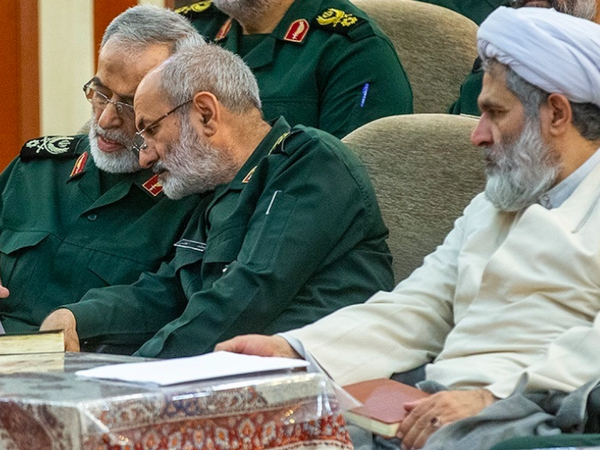Iran International has obtained court proceedings of a significant corruption case that reveal several IRGC prison interrogators have received hefty bribes.
The 10 pages of the document reviewed revealed the names of seven members of Intelligence Organization of the Islamic Revolutionary Guard Corps (IRGC-IO), who work as interrogators in major corruption cases that usually involve people with links to the regime. Each of these IRGC officials – the so-called ‘judicial enforcers’ -- has received money from several people charged with economic crimes.
The document exposes high-ranking officials, including Mohammad Mehdi Badi, IRGC-IO's deputy interrogator for economic crimes, who accepted huge sums of money. Only in one case, he received $400,000 and €60,000 from Rouhollah Danialzadeh, known as the “Sultan of Steel” in Iran because of his mafia-like network over the steel industry.
Danialzadeh was one of the key people indicted in the court case involving Akbar Tabari, the Iranian Judiciary’s former Executive Vice President and Finance Director for over two decades, who ran a bribery network. His network orchestrated a massive corruption and bribery scheme involving numerous officials, most of whom evaded accountability, as is often the case with individuals tied to the Islamic Republic. Danialzadeh’s verdict, including a 15-year prison term, was overturned several months after it was issued. It is not clear from the document if his conviction was overturned because of bribery.
According to Iran International’s Mojtaba Pourmohsen, IRGC's Badi also received tens of thousands of dollars from Esmaeil Khalilzadeh, the former chairman of the board of directors of Tehran’s Esteghlal Football Club and the owner of a large hotel in Iran’s northern Gilan province. He was arrested by the IRGC-IO in 2021 on charges of financial corruption in a big case about a silk factory.
The document also revealed that another business crime boss called Hadi Darvishvand, who owns Kermanshah Refinery in eastern Iran, gave the IRGC-IO's deputy interrogator for economic crimes $47,000, €48,000 and 150 gold coins.
Another senior IRGC-IO interrogator who received handsome bribes was Behnam Hajipour Khireh-Masjedi, who was one the interrogators in the case of Sina Estavi, the CEO of a cryptocurrency exchange company. Estavi’s case, involving over $20 million in embezzlement, has 51,000 complainants, mostly ordinary citizens who lost their money in Estavi’s cryptocurrency scam. He was sentenced to 15 years in prison, 75 lashes, fines, asset forfeiture, and a travel ban. He escaped from Iran in November.
According to journalist Mohsen Sazegara, such cases are proof that the Islamic Republic’s measures to address economic corruption are "nothing but empty promises." He told Iran International that the IRGC-IO is the biggest intelligence service in Iran and is closely tied to Supreme Leader Ali Khamenei and his son Mojtaba, claiming that “It is also the most corrupt intelligence outfit of Iran.”
Major corruption cases in Iran involve regime insiders, officials and their business partners. If a case is exposed by rival factions, usually there is a lack of transparency involving legal proceedings. Some of the accused can avoid any consequences as a clear and full picture never emerges.
